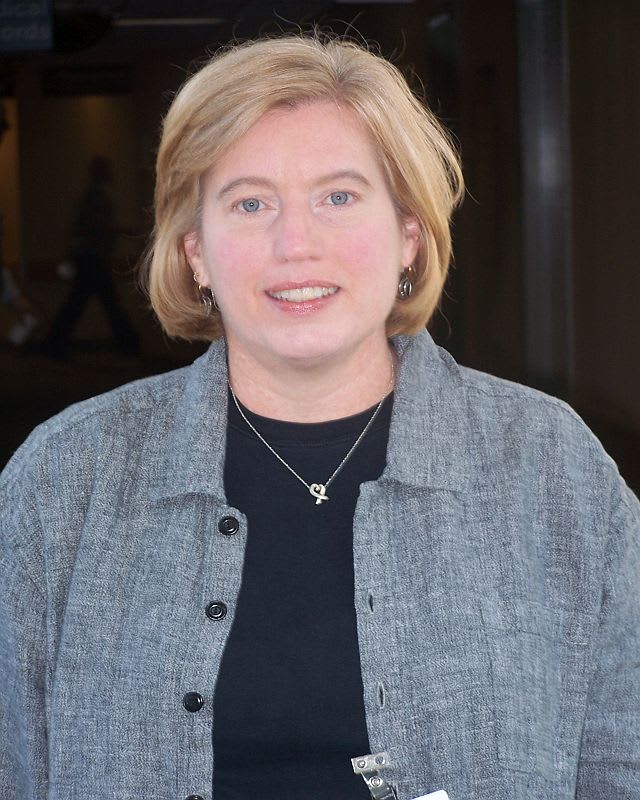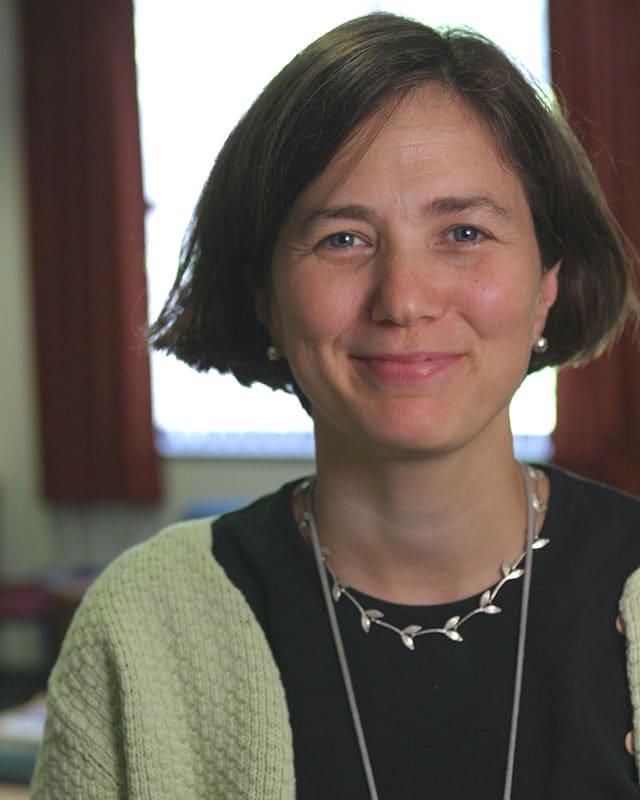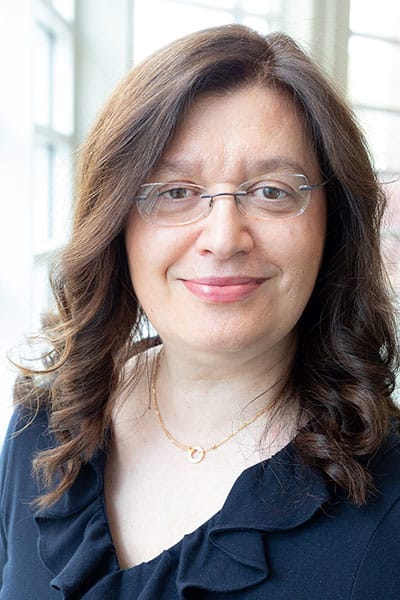Resident Experience
Our residency program in psychiatry is a four-year accredited program.
Applying to the Psychiatry Residency Program
The Berkshire Health System participates in the Electronic Residency Application Service (ERAS). This service is provided by the Association of American Medical Colleges (AAMC) and streamlines the residency application process.
- The ERAS applications are reviewed on a rolling basis from the date on which they become compete.
- Applications will not be reviewed unless they are completed by December 1
- To compete your ERAS you will need:
- Personal Statement
- Dean’s Letter
- Transcript
- 3 letters of recommendation (minimum)
- COMLEX Level 1, 2, and 2 PE scores
- Completed applications are reviewed and qualified applicants are identified based on academic performance, passing COMLEX Level 1 & 2 scores, letters of recommendation and clinical experience
Berkshire Medical Center’s Psychiatry Residency Program requires:
- Graduation from Medical School: Must be within the past 10 years.
- Applicants must be graduates of approved medical schools in the United States or Canada. Graduates of foreign medical schools are required to have a valid ECFMG certificate.
- Visa: J-1 & H1B
- Interviews are required
Essential Functions
Residents in our program work & learn in a variety of settings and clinical roles. Essential job functions of a resident physician’s role in our residency program include the ability without an intermediary to:
- Take a history and perform a physical examination of patients.
- Communicate with patients and staff, verbally and otherwise in a manner that exhibits good professional judgment and is appropriate for the professional setting.
- Read charts, monitors, and other sources of clinical information.
- Complete appropriate medical records and documents and plans according to protocol and in a complete and timely manner.
- Possess sufficient sensory and motor function to elicit information from patients by palpation, auscultation, percussion and other diagnostic maneuvers.
- Be able to execute motor movements reasonably required to provide general care and emergency treatment to patients.
- Perform all job functions while dressed in protective clothing required for clinical duties, including tolerating a mask, gown, and gloves.
- Move throughout the Medical Center to address routine and emergent patient care issues and to attend required educational programs.
- Work shifts of varying lengths and schedules including daytime, evening, & overnight clinical shifts.
- Fulfill backup and on-call duties as scheduled.
- Provide care at all clinical sites, including Berkshire Medical Center, our Ambulatory clinic, and other affiliated practices of BMC (the Cancer Center, etc..).
- Utilize a computer for medical record review, documentation, decision support, research, and education in an efficient and timely fashion.
- Possess the emotional health required for full use of their intellectual abilities, the exercise of good judgment and the prompt completion of all responsibilities attendant to the diagnosis and care of patients.
- Have the emotional maturity to self-assess, know own limitations and seek advice or counseling in situations that might impair own learning or performance in the care of patients, and to proactively seek appropriate treatment.
Rotation Summary
First Year:
Four blocks of internal medicine; two blocks of neurology, and seven blocks of inpatient psychiatry.
Second Year:
Seven blocks of inpatient psychiatry; three blocks of clinical work divided into 2/3 inpatient substance psychiatry, 1/3 emergency psychiatry, and three blocks consultation liaison psychiatry.
Third Year:
Third year is fully devoted to outpatient psychiatry and provides for training in adult, child, adolescent and geriatric psychiatry and a rich set of chief residencies in inpatient psychiatry, consultation-liaison psychiatry, substance abuse treatment, psychopharmacology and clinical research and emergency psychiatry.
Fourth Year:
Electives & Further Training:
clinical research; grant-funded public health implementation programs that have included a SAMHSA/MA DPH best practices in suicide prevention, a Massachusetts Health Policy Commission funded telepsychiatry behavioral health integration in primary care, and opiate use disorders innovative bridging programs to treatment; performance improvement, employee assistance services, college student counseling, sleep disorders, pain and co-morbid psychiatric disorders, advanced training in cognitive-behavioral therapy for anxiety disorders, advanced training in dynamic psychotherapy and advanced training in substance abuse treatment.
Seminars:
There is a rich curriculum of seminars taught throughout the four years that both meet and surpass the program requirements for certification in psychiatry. Didactic seminars take place twice each week. The program also offers yoga-mindfulness training, resilience and self-care training, extensive training in the psychiatric interview, fostering healthy patient-physician relationships, world-view and spirituality seminars and a host of other offerings that help the psychiatric resident evolve into an ever more grounded clinician, teacher and leader ready to face the public health challenges before us.
Salary & Education Benefits
Salary for Academic Year 2024-2025
- PGY-1: $68,078
- PGY-2: $70,741
- PGY-3: $73,632
- PGY-4: $75,586
Educational Benefits Effective July 1st of each academic year, and subject to annual revision, the following allowances are available to all interns and residents for: books, journals, medical software, other educational resources, and professional society dues.
- PGY-1 $500 per year
- PGY-2 $500 per year
- PGY-3 $500 per year
- PGY-4 $1000 per year
- PGY-5 $1000 per year
In the final qualifying year for specialty board examinations, each resident shall also be granted an additional $1,000 for a Board Review Course approved by the individual resident’s program director. This allowance may not be used to pay for fees to sit for the Board examinations. Allowances may not be carried over from one year to the next.
A complete Board Review Course is provided on-site in the PGY-3 year for Internal Medicine residents.
General Benefits
Medflex:
Berkshire Medical Center’s flexible benefit program includes health insurance options, dental insurance options, basic life insurance, supplemental life insurance, long and/or short term disability insurance, health care and dependent care spending accounts on a tax free basis, and spouse and child term life insurance on an after-tax basis. The flexible benefit program provides dollars provided by BMC to be applied toward the purchase of benefits on a pre-tax basis, or a lesser sum to be taken as taxable cash if your spouse provides health insurance for you from another source. The dollars, if utilized for health insurance, include 90% of the cost of individual coverage or 75% of family coverage based on Network Blue New England. Benefit dollars are provided to partially cover dental insurance premiums, and to fully cover the cost of the long-term disability (50% option).
Health Care Spending:
Accounts allow you to contribute pre-tax money weekly for health care expenses not covered by health insurance plans. It can add tax savings to the protection you receive from our medical and dental plans.
Dependent Care Spending:
Accounts let you pay your dependent care fees on a pre-tax basis, as long as the care makes it possible for you to work.
Basic Life Insurance:
A term life insurance is provided, paid in full by BMC covering one times your annual salary, effective upon date of hire.
Uniforms:
White coats and scrubs and laundry of these garments will be provided.
Professional Liability:
Liability insurance is provided for house officers free-of-charge during the term of the contract. Coverage pertains to in-hospital activities only. Limits are stated in contract between BMC and the Berkshire Insurance Company. Tail coverage is included in this policy.
Registration Fees:
Registration fees for temporary licenses are covered for house officers who are not permanently licensed in the Commonwealth of Massachusetts.
Vacations: Each house officer is entitled to four (4) weeks of vacation with pay each year.
Outcomes
Recent graduates who have been interested in further fellowship training have gone on to programs including Massachusetts General Hospital, Harvard Medical School, Yale, Sloan-Kettering–Cornell, Emory and the University of Massachusetts Medical School to name a few.
Our graduates who have been interested in fellowship training study child and adolescent psychiatry, addiction psychiatry, public psychiatry, psychosomatic medicine, geriatric psychiatry and sleep disorders. Others have assumed leadership roles and/or clinical practice in statewide public psychiatry programs, prestigious medical centers, community hospitals and private practice settings.
Faculty
The faculty of the BMC Adult Residency in Psychiatry consists of psychiatrists, internists, neurologists, pediatricians, pain and other medical specialists, along with allied health professionals, including clinical psychologists, advanced practice psychiatric nurses and social workers. Current faculty have trained at many of the top programs in the country. Faculty are recruited, in part, for their skill, excellence and deep commitment to teaching medical students and residents. The faculty bring what they have learned from their own programs, and, together with the residents and medical students from three schools, discover and co-create an ever-evolving curriculum to meet present challenges and the emerging future.











